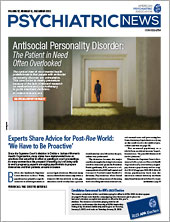My annual pilgrimage to Europe occurred this past August. The trip was short but necessary so that my wife and I could help our aging extended family in Poland. Every time we fly there, we feel guilty about our carbon footprint, but there is no “clean energy” alternative to get there. I try to lessen my guilt by convincing myself I do not fly that much, but, in truth, I know I fly too much.
Poland has many refugees from Ukraine, and there is a palpable undercurrent of tension about the war and the way it is affecting neighboring countries. Poland and other European nations are uncertain and anxious as winter approaches, having been dependent upon Russia for energy resources and concerned that the Putin regime will further weaponize energy. I urged my father to stock up on firewood or coal to survive the cold months, causing me to feel conflicted, since I installed solar panels in Tucson and recently purchased an electric vehicle.
A related aspect of this crisis is Russia’s huge surplus of natural gas; Russia is burning unused gas and releasing massive extra amounts of carbon dioxide into the atmosphere. In addition, an environmental disaster could ensue with regard to the Zaporizhya Nuclear Power Plant in Ukraine, now occupied by Russian troops. It is the largest nuclear plant in Europe, so a major failure would cause unimaginable damage and contamination and make large swaths of Ukraine uninhabitable for centuries.
Proponents of green energy are tense. Some promote nuclear energy as it is carbon neutral and may not worsen climate change. But the implications of nuclear energy’s radiation risks or the use of nuclear weapons for political reasons could cause utter destruction and further environmental degradation. Humanity has a questionable track record in safe and responsible use of nuclear energy. I am “a Chernobyl-era kid”—I was a senior in high school in Poland when the reactor exploded in 1986. I took iodine for prophylaxis as the radioactive contamination zone spread all the way to Scandinavia and Germany.
It is obvious that international events distract and divert us from staying focused on efforts to mitigate climate change. They also generate difficult feelings, including fear, apathy, and demoralization, that challenge the importance of working to improve our collective welfare. The current conflict in Ukraine provides an opportunity to transition more rapidly to clean energy, but it could compel our leaders to rely more on fossil fuels to maintain our current level of comfort and lifestyles.
My parents directly experienced the horrors of World War II as small children. Climate change has reawakened their feelings of anxiety and helplessness—it has changed their world in ways that are difficult to comprehend and adapt to. Hot summer days make them prisoners in their own home for health reasons. I am concerned about increased exposure of future generations to trauma due to climate migration and more conflicts mediated by extreme weather events. Our mental health system is already inadequate; what will happen when more and more people cannot get the help they need?
August in Poland provided evidence of climate change in action. In my youth, summers were typically pleasant and warm, with occasional hot spells. It was different this time, with higher temperatures, high humidity, and very warm nights. Air conditioning is not widely available. I could not sleep well during my visit and was very tired in the mornings. Ironically, I was relieved and comforted to return to the dry heat of the Sonoran Desert.
On our return trip home to Arizona, I was reminded of the environmental crises we face in the United States. For example, the epic Southwest drought is having dramatic impacts on water rights and availability. Some states and their agricultural producers suffer more than others. Is this a prelude to more aggressive competition within and between states over water supply? (The Water Knife by Paolo Bacigalupi is a very compelling vision of such a scenario.) It was nice to hear thunder and drops of rain over Tucson shortly after our return. ■

